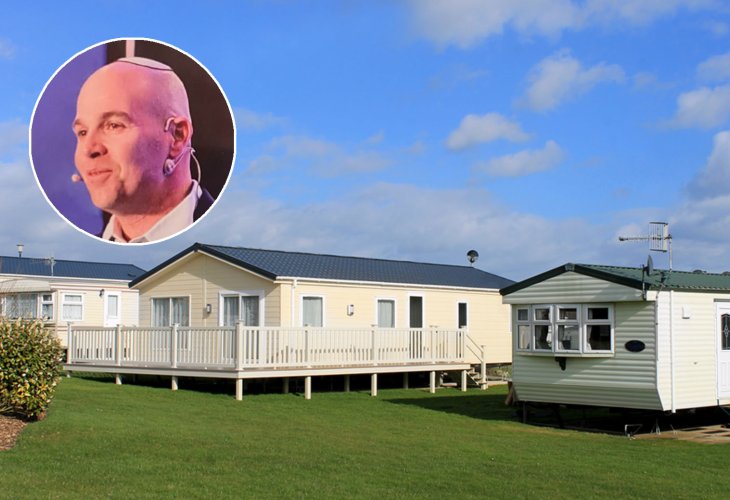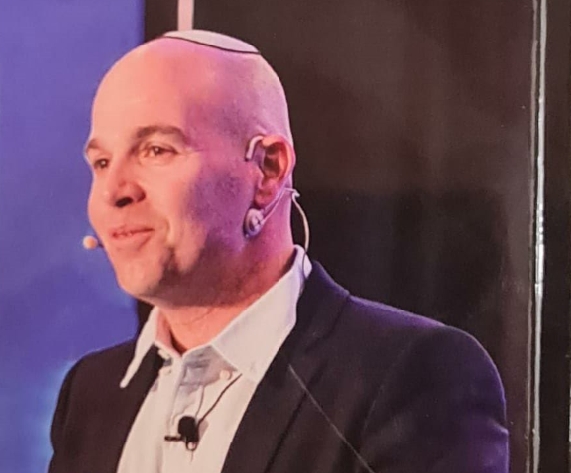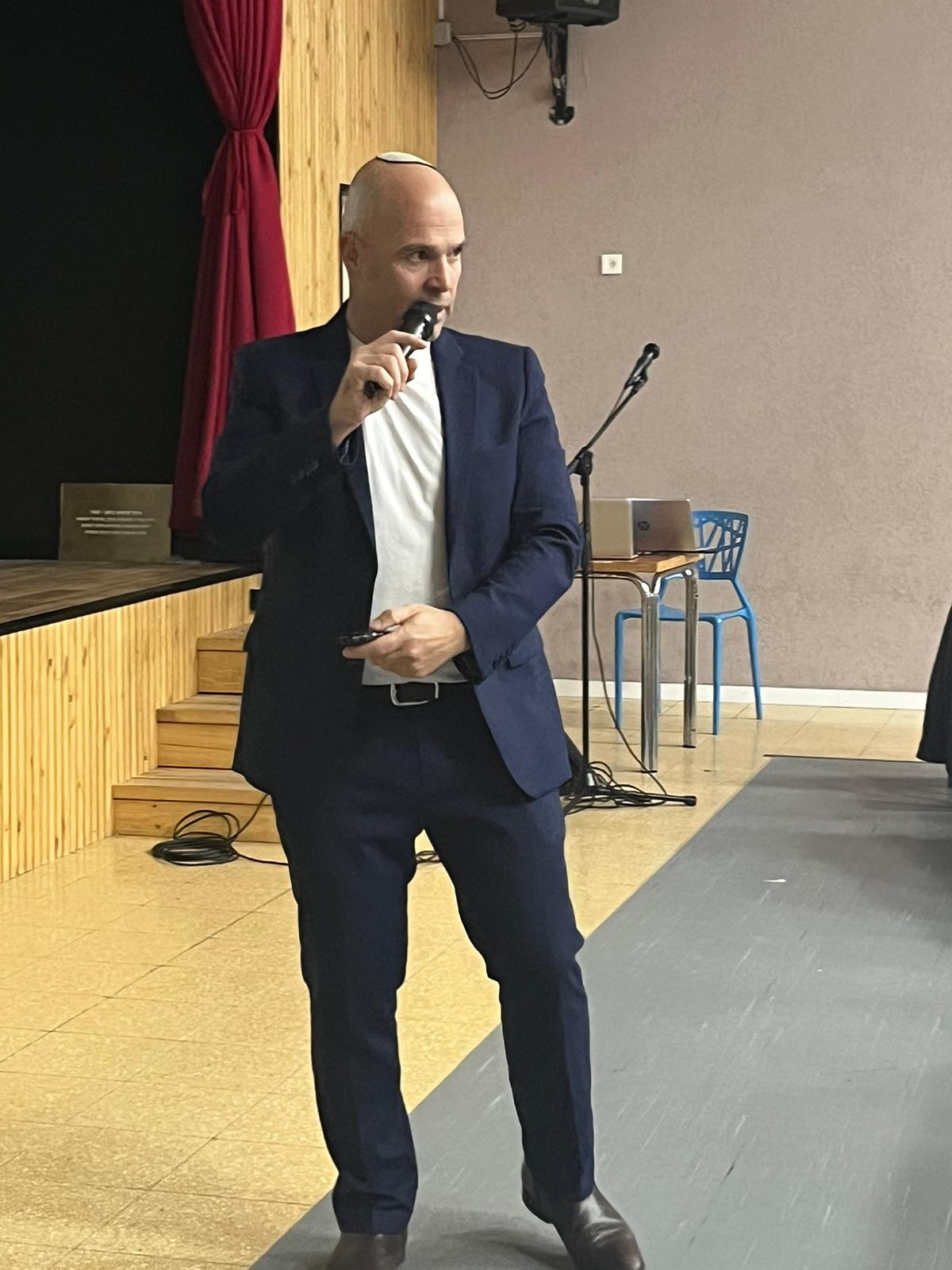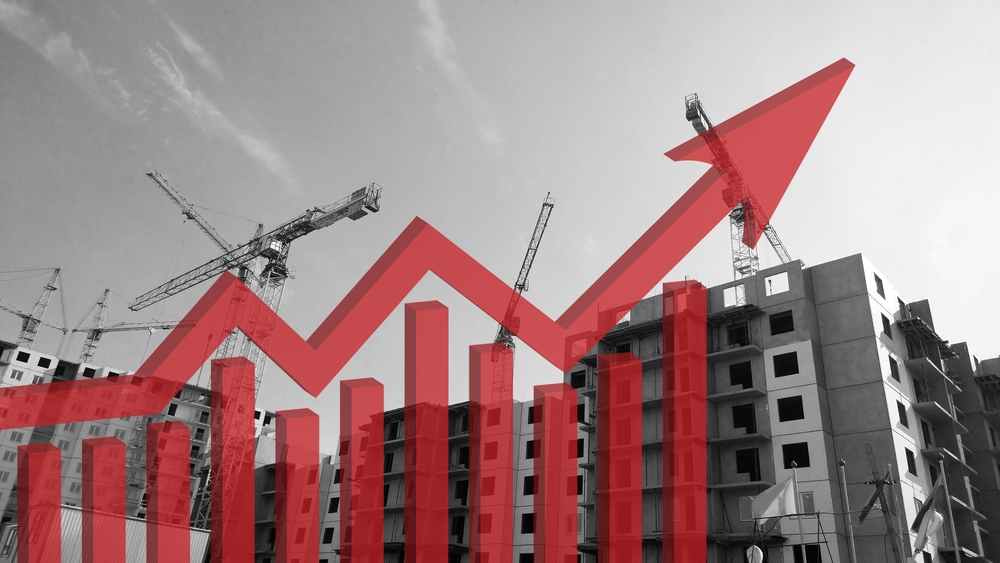"The Creditors Left Us with a Trailer, No Oven or Washing Machine, and Two Young Daughters"
Hanan Tsaig, a newly married father, faced one of the greatest challenges of his life when his business collapsed, leaving him without even a washing machine. After years of rebuilding himself as an economic consultant, he now sees it as his mission to help others live happily, free from financial stress.
 In the circle: Hanan Tsaig (Illustration photo: shutterstock)
In the circle: Hanan Tsaig (Illustration photo: shutterstock)"I wouldn't wish anyone to experience what I went through," says Hanan Tsaig, recalling the difficult and humiliating period two decades ago when his business collapsed and he had to face creditors sent by the enforcement authority.
"During that time, we lived in a trailer – my wife, myself, and our two young daughters. Then the enforcement officers came and took the few items that still served us – the living room table, the oven, even the washing machine, leaving us with an empty house..." Hanan speaks with pain. The memories are clearly unbearable. "But the truth is, the greatest difficulty was the humiliation," he adds, "and the feeling of helplessness that lingered for years after, buying basic groceries for the family without knowing if the card would go through. For someone accustomed to massive business success, with people begging to partner with him, it was a severe blow, a truly horrific experience. Even then, I resolved to use all my knowledge and strength to prevent others from experiencing such hardships. Unfortunately, many families find themselves in similar situations, especially today, with rising costs of living. But I believe that even in such situations, we are all entitled to live peaceful lives without financial stress. I believe there is hope."
 Hanan Tsaig (Photo: Tali Weinberg)
Hanan Tsaig (Photo: Tali Weinberg)
On Top of the World
Hanan's story starts when he was a student and took what seemed to him the smartest economic step – he opened a business with a friend, a limited company focused on homeware retail.
"Both of us were newly married and simply took all the money we received from the wedding and jumped into this adventure without any guarantees, collateral, or a solid business plan. We just believed that enormous success was possible, and indeed, for the first year and a half, we saw great prosperity – with annual revenues of 2.2 million shekels. The chain we worked under as franchisees sent us to participate in famous programs to talk about our success. Whenever they wanted to tout their success, they referred to us, because our store was beautiful, invested in, organized, and pleasant. And as expected, the profits were also very nice. We felt on top of the world."
But two years later, things started to go wrong. "There are many objective reasons for this, some related to us and some not dependent on us at all," he explains. "For example, the 'anchor store' in our area moved to the other side of the street. An anchor store, for those who don't know, is usually a large supermarket set up in a shopping center to attract surrounding shopping activities. If you pay attention, around every large supermarket, various other stores are built to offer a range of products, with the goal that people who already shop at the supermarket will also buy additional products along the way – clothes, gifts, electrical goods, and so on. Our store was very close to that anchor store, and it affected sales. As soon as the big store moved to the opposite side of the street, our sales dropped by 30%. Since from the start we operated on a very low profit margin, the damage was severe.
"Overall, the entire system in which we operated as franchisees turned out to be unreasonable over time, but we realized it too late, when the cart began to derail. Our situation was so dire that even in the hottest times of the year – the eve of Rosh Hashanah and Passover, which are periods where stores like ours are supposed to bring in high revenues covering the relatively dry days of mid-year, there was almost no income. Suddenly we found ourselves understanding that we were hardly making any money, while debts grew day by day."
Everything Collapses
In those very days, Hanan and his wife had their first daughter, and his partner also became a father, which made both of them suddenly realize the challenging situation they were in. "Suddenly I realized I'm a father, and I had to take responsibility for life," Hanan explains. "It shook me greatly, and also hurt me very much – I saw with my own eyes how the business I invested so many hours of work, whole nights without sleep, suddenly collapses."
What do you do in such a situation?
"With a heavy heart, we understood that we had to retire and leave everything. The store didn't close, but was transferred to other franchisees, yet we were left with enormous debts, a whirlwind of court and enforcement proceedings, and as I mentioned – the most difficult feeling was realizing that you turn from a successful businessman into someone everyone chases to collect the debts owed. The disgrace was so huge; even now speaking about it brings the pain back. Even after selling the franchise and paying off debts, doing everything we could, we were left with debts of around a quarter of a million shekels. Talking about 2005 terms, that's equivalent to amounts about three times larger today. Only about five years ago did we completely finish paying off those debts."
Today, if someone consults you on a similar topic, what would you advise before opening a business?
"The first sentence I would tell them is: 'Stop! Have you planned anything? Do you even have a business plan?' Since today I'm a professional economist, family economist advisor and business consultant, I understand there's no possibility in the world to open a business without an organized business plan and a business forecast that puts order in one's head, clarifying in the clearest way which products he will sell, how much he can sell, and what really lies ahead. It isn't always necessary to hire a professional for this; some people can do it themselves, but an approach of 'let's open a business and see what comes' is a direct recipe for economic collapse. Unfortunately, tens of thousands of businesses close every year in Israel."
 (Photo: Hadar Jacob)
(Photo: Hadar Jacob)And you want to tell me that people really don't think about it when they open a business?
"Unfortunately, when people decide to open a business, they are generally eager, driven, and it's hard for them to see the whole picture and understand the risks. I remember when one of the famous 5-shekel coffee chain stores was established, it was announced that there were dozens on a waiting list to become franchisees and open a branch in their area, the same with franchisees of famous restaurants all over the country. People think it seems profitable and advantageous, and they jump into it without understanding right or left. I'm not saying it's not profitable, but I'm saying you must examine the topic thoroughly, prepare an action plan, understand the scale of risk always present, ensuring you can absorb the damage in case of a downfall."
In addition to business consulting, Hanan currently also offers mortgage advice services along with his wife. "In this field too, I often see people rushing and feeling ready to do anything to buy a house, no matter the mortgage cost or the monthly repayment amount. Fortunately, banks have regulators preventing them from making many mistakes, but that is not enough. Each time, I find myself warning couples who come to me: 'Even if the bank approved your mortgage, don't enter the cycle of buying a house unless you find a clear way to increase profits, or alternatively, bring in some guarantor ready to help you monthly with the cash flow. Because there is no other way, and you don't intend to find yourself in a harsh downfall."
During these times when interest rates are constantly rising, it seems even those who took a calculated mortgage might fall. What would you say to people discovering today that the mortgage they took a year ago has increased by hundreds of thousands of shekels?
"Unfortunately, I am very familiar with the situation. Not long ago, the Bank of Israel approved taking two-thirds at prime in mortgages, and that same prime interest rate, which stood at 1.6% at those times, was raised by the Bank of Israel itself to 3.15% over about seven months, and it is expected to keep rising soon.
"I can say about myself - I prepared for the interest rate increases and warned those who consulted with me that an economy cannot run for so many years at zero interest, and therefore they must take into account when planning their mortgage that the rise was inevitable. I know that other mortgage advisors operated the same way, but none of us could predict the Russia-Ukraine war that would significantly impact the global economy. Also, no one could foresee the effects of COVID-19 on the economy, which continue to accompany us to this day. In practice, I now see couples who are 'tearing themselves apart' to pay the mortgage, and it hurts me very much for them. Understandably there are no magic solutions, but in many cases, there is still something to do to ease the burden, like changing the mortgage track and other ways to reduce the family's monthly repayment, which can truly save lives. For those finding themselves in such a situation, I strongly recommend consulting a professional, as sometimes they can open their eyes and truly save them."
 (Photo: shutterstock)
(Photo: shutterstock)
Simply Raising Awareness
"But mortgages aren't the whole story," emphasizes Hanan, "because when people want to feel economically secure, they need to care about it and pay attention, at least on an awareness level, even without practically dealing with it. For example, I once met someone who repeatedly claimed he had no ability to save on monthly expenses. I decided to prove him otherwise and asked him to conduct an experiment: 'Every time you pass a gas station and buy something at the convenience store – write it down on paper, just write down, without changing anything.' At the end of that month, he discovered he was spending about 2000 shekels just on drinks and small snacks he bought during travel. The conclusion was clear - if he just made sure to take a bottle of water from home before leaving or bought a snack at the nearby supermarket, whose price is about 50% of that in the convenience store, he would reduce such a large and significant expenditure every month.
"Economic security is important to all of us; now it is also known that financial pressure causes stress and may severely impact marriage, the relationship between parents and children, and your perception and self-worth in the world. As someone who paid the price for learning the hard way for many years, I truly see it as my right and duty to speak up on this matter. This is also what led me recently to write the book 'You Have a Choice', where I try to provide as much economic information as possible to assist the economic security of every home in Israel. If even one family is saved because of this and gets to live a better and happier life – then my reward will be".
Thanks to Malachi Rosenberg for his help in preparing the article

